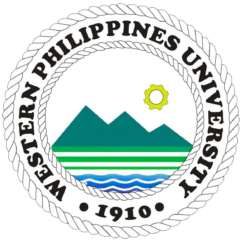The Palawan Scientist Journal adheres to the highest ethical standard of publication
Code of Ethics for Authors
- The manuscript shall contain the author’s original and unpublished work, and which is explicitly not simultaneously considered for publication in other journals.
- The Guide for Authors should be strictly followed and complied with.
- The manuscript shall be free from plagiarism and falsification, well-written in American English, spelled and grammar checked using language editing software and/or underwent proofreading by an English critic. The works of other authors have been properly and fully cited.
- The author shall nominate or suggest at least three competent reviewers who are experts in the field and who have not actually participated in the research work submitted for consideration. However, the editor reserves the right to invite reviewers not among those suggested in the interest of the most critical and fair assessment of the submitted manuscript.
- Each author must have a substantial contribution in the conduct of the study and/or writing of the manuscript and such contributions must be stated and enumerated unequivocally. All others may be listed in the Acknowledgment section of the manuscript.
- The journal editors shall establish communications only with the corresponding author in the case of multiple-authored submissions, who shall keep all co-authors updated about the progress of the review process and its outcome.
- The corresponding author shall comply with deadlines set for revising their manuscripts and other tasks.
- It is the responsibility of the authors to comply with all applicable ethical standards in the conduct of the study and to reflect such compliance in the submitted work.
- The corresponding author should contact the editor promptly to retract/correct the published paper when serious errors and/or grave ethical violations are detected by a third party.
Code of Ethics for Reviewers
- Reviewers should agree to review manuscripts only for those they have the subject expertise.
- Reviewers immediately identify any conflicts of interest (resulting in financial, personal, intellectual, professional, political, or religious), if any, and subsequently decline the review request.
- Reviewers should ensure performing a requested review within the time-frame set by the editors and decline the invitation if such time-frame cannot be complied with.
- The journal employs a double-blind review system so that any untoward biases may be avoided.
- Reviewers are expected to be totally objective, impartial and constructive with their review to ensure the best possible outcome in showcasing the research as a worthy contribution to the scientific literature.
- All information should be treated by reviewers with utmost respect and strictest confidentiality and should never be used for purposes other than for critical evaluation for scientific merit and technical impact.
- Reviewers should follow the TPS guidelines on peer review and other established ethical and reviewing protocols.
Code of Ethics for Editors
- Editors should be responsible for anything distributed in their journals.
- Editors should make choices to acknowledge or dismiss articles based on their academic or journalistic merit, counting their significance, creativity, clarity, and pertinence to the journal’s mission and area.
- Editors should accept original articles from all authors and should at all times keep up objectivity and maintain balance in reviewing all articles, acting without predisposition of bias or favoritism based on the origin of a paper; an author’s sexuality, race, nationality, ethnicity, affiliation or political convictions, age; or commercial rumination.
- Editors should give direction to reviewers on everything expected of them, including the confidentiality in handling submitted material, disclosing conflict of interest before the review, and ensuring that the reviewers’ identities are protected.
- Editors should take steps to guarantee the timely evaluation of all articles and answer promptly the author’s queries regarding the status of their papers.
- Editors should explain to authors the decision made on their articles through a letter with the reviewer’s comments and suggestions.
- Editors should adhere and conform to the editorial policies, regulatory guidelines, and higher ethical standards of publication.
- Editors should not expose the identity of authors, reviewers and keep the privacy of unpublished articles.
- Editors should protect the decency of the journal from suspected and alleged misconduct in the research and publication process. They should instigate proper and reasonable investigation to fairly resolve any issues.
